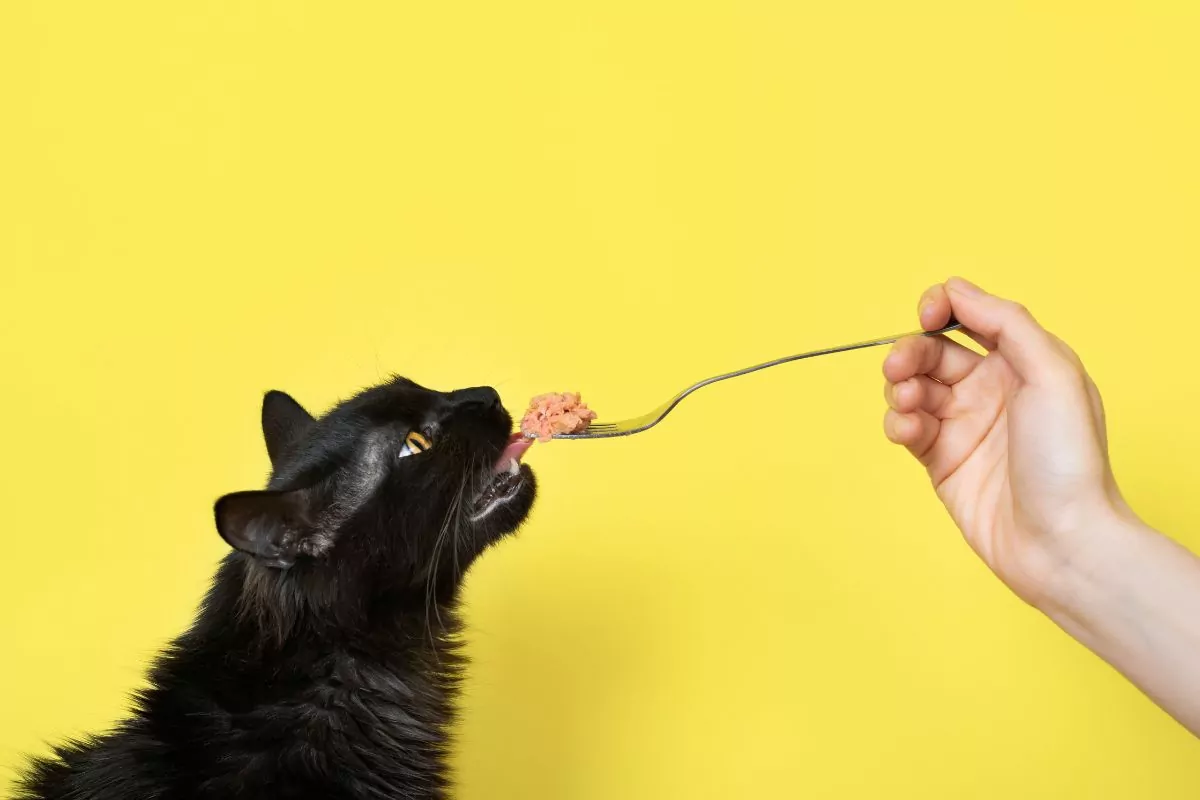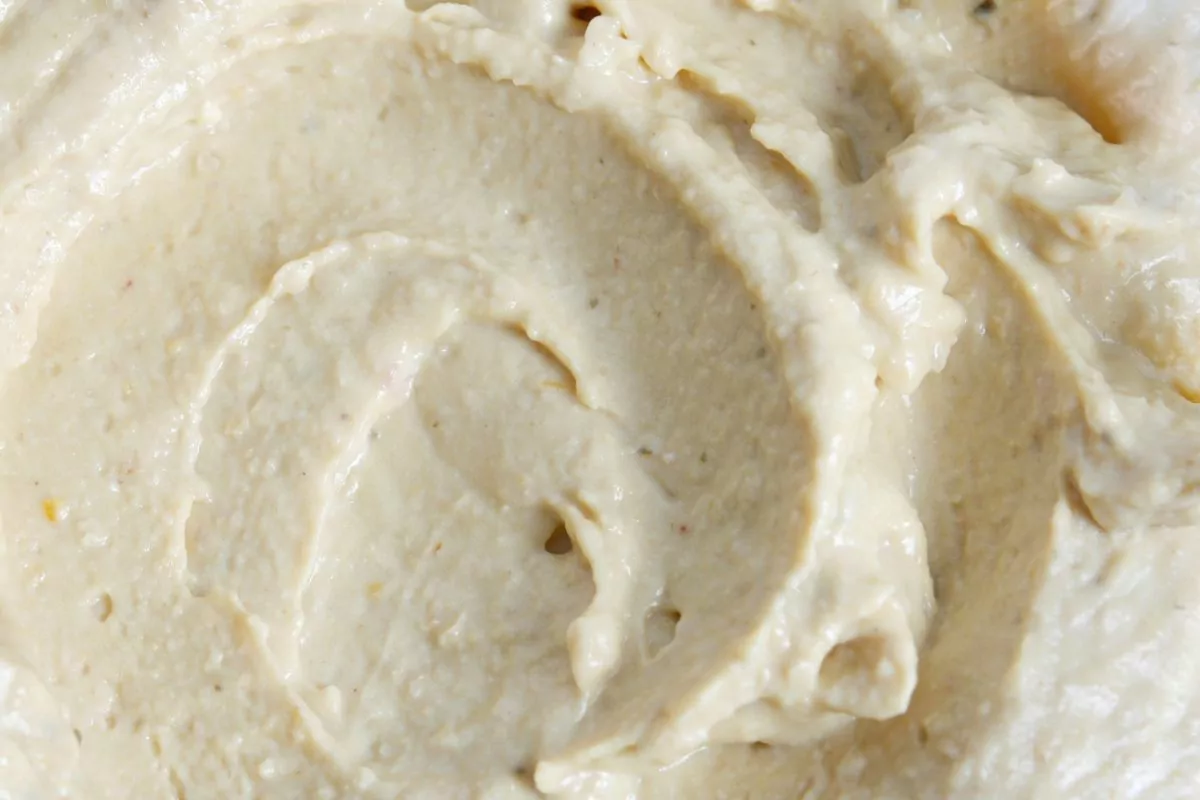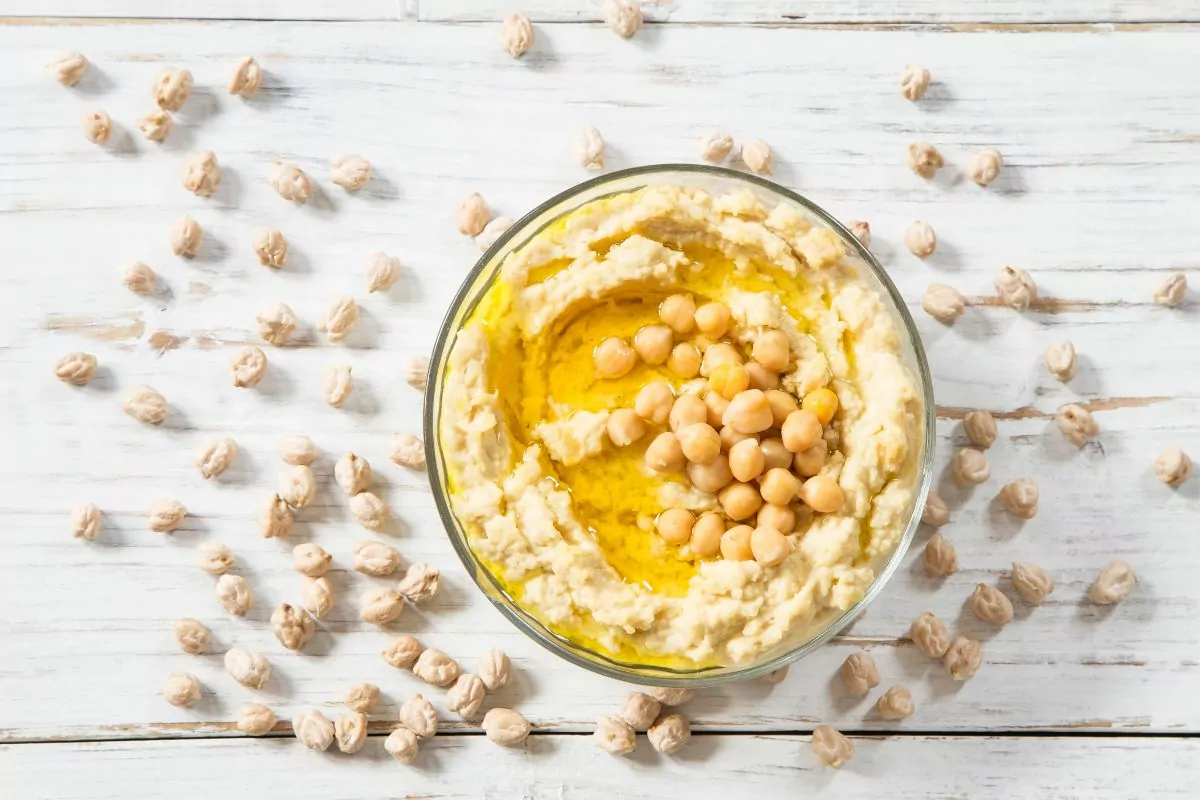Cats and Hummus
Hummus has gained widespread popularity recently due to its delicious taste and nutritional benefits for humans. Nonetheless, the big question remains: can cats eat hummus?
Cats, our lovely feline companions, have specific dietary requirements that differ from ours. As responsible pet parents, we must be mindful of what we feed them. Let’s investigate whether cats can safely consume hummus and what alternatives suit their dietary needs. Stay with us.

What is Hummus?
Hummus is a creamy, thick spread made from mashed chickpeas or other beans, blended with various ingredients to form a smooth and flavorful paste. Typically, it contains ingredients like tahini (sesame paste), olive oil, lemon juice, salt, and garlic.
It’s well known for being rich in protein, fiber, and healthy fats, making it a popular choice for health-conscious individuals.
Can Cats Eat Hummus?
Before exploring whether cats can eat hummus, it’s crucial to understand a cat’s dietary needs. Cats are obligate carnivores, meaning their diet primarily consists of meat. Protein is a vital component of their diet, and they have specific requirements for amino acids that are essential for their overall health.
Feeding hummus to your cat is not advisable. While chickpeas, the primary ingredient in hummus, are not toxic to cats, other ingredients commonly found in hummus can harm them.
Garlic and onion, often used in hummus recipes, are toxic to cats and may trigger severe health issues. They contain compounds that may cause damage to your cat’s red blood cells, leading to a condition called Heinz body anemia. This condition can be life-threatening to your cat and requires immediate veterinary attention.
Is Hummus Good for Cats, or is Hummus Bad for Cats?
Hummus is bad for cats and is not suitable for feline consumption.
In addition to the harmful ingredients, hummus is not nutritionally appropriate for cats. Cats require a diet primarily composed of animal-based proteins. Hummus is plant-based and lacks the nutrients cats need for their overall health and well-being.
Can Cats Eat Falafel?
Cats should not consume falafel. Falafel typically consists of chickpeas, herbs, and spices, which are unsuitable for a cat’s digestive system. Foods like falafel can be challenging to digest properly.
It’s always best to stick to a cat’s regular diet and avoid offering them human foods, especially ones that contain ingredients not appropriate for feline consumption. If you’re concerned about what your cat can eat, it’s always advisable to consult a veterinarian for guidance.
How to Safely Feed Hummus to a Cat
If your feline friend enjoys hummus, we recommend providing only little portions sometimes. Consider using recipes that don’t contain garlic, tahini, or hot sauce. Even though avoiding these ingredients can minimize health risks, kittens should only consume a little bit.
Although chickpeas aren’t particularly bad for your cat, overeating might result in indigestion and diarrhea. The ideal meal for your cat is premium cat food with real meat as the first ingredient, such as chicken or turkey.
Reasons NOT to Feed Hummus to Felines
There are several compelling reasons why you should not feed hummus to felines:
- Potential allergies: Cats can be allergic to various ingredients present in hummus. Allergic reactions can manifest in symptoms like skin irritation, digestive problems, or respiratory issues.
- Lack of essential nutrients: Hummus does not provide the nutrients cats require for a balanced diet.
- Digestive issues: Cats may have difficulty digesting the ingredients in hummus, leading to gastrointestinal distress, such as vomiting, diarrhea, or stomach discomfort.
- High-fat content: Hummus often contains a relatively high fat content, which can be challenging for cats to digest. This may lead to digestive upset or, in extreme cases, pancreatitis.
- Risk of overfeeding: Feeding hummus to your cat may encourage them to consume more human food, leading to overfeeding and an unbalanced diet, potentially causing weight gain or other health problems.
- Inadequate protein source: Hummus lacks the animal-based proteins vital for a cat’s diet. Cats require specific amino acids found in meat, which hummus does not provide.
- Inappropriate food choice: Hummus is not intended for feline consumption and cannot meet the nutritional needs of cats. Offering it to cats could deprive them of the necessary nutrients they require.
- Vet disapproval: Veterinarians strongly advise against feeding your cat with hummus due to the potential health risks associated with its ingredients.

Are Chickpeas Toxic to Cats?
Chickpeas themselves are not typically considered toxic to cats. Plain, cooked chickpeas in small amounts may not necessarily harm your cat. However, excessive chickpeas can potentially cause health complications to your cat. Sticking to a balanced diet formulated specifically for cats is always best.
Is Garlic Toxic to Felines?
Yes, garlic is toxic to felines. Even the smallest amount of garlic can cause adverse effects in cats, including gastrointestinal upset, lethargy, loss of appetite, and more severe symptoms in larger quantities. Keeping garlic and any products containing garlic away from cats is essential to ensure their safety and well-being.
What To Do If Your Cat Eats Hummus by Mistake
If your cat accidentally consumes hummus, it’s essential to take appropriate action to ensure their well-being. Here’s what you should do if your cat ingests hummus by mistake:
Contact a Veterinarian
Contact your vet or an emergency animal poison control helpline immediately. Provide them with information about the quantity of hummus your cat has consumed and any symptoms they may be experiencing.
Monitor Your Cat
Keep an eye on your cat for signs of distress or adverse reactions. Symptoms may include vomiting, diarrhea, lethargy, loss of appetite, abdominal pain, or other unusual behavior.
Do Not Induce Vomiting
Unlike in some cases of poisoning, it’s generally not advisable to induce vomiting in cats after they consume hummus. Inducing vomiting can cause further distress and may not be effective for certain toxic substances.
Follow Veterinary Advice
Based on the information provided, your veterinarian will guide you on the best steps. They may recommend bringing your cat in for a check-up, administering specific treatments, or monitoring your cat’s condition at home.
Prevent Future Incidents
Take measures to prevent such incidents in the future. Keep human foods like hummus and any toxic substances securely stored and out of reach of your cat.
Follow Treatment Plan
If your veterinarian prescribes any treatment or medication, ensure you follow the instructions carefully and complete the entire course of treatment.
How Much Hummus Can My Cat Eat?
It’s not advisable to feed hummus to your cat at all.Instead of offering hummus or similar human foods, giving your cat a balanced meal that meets their nutritional needs is essential.
Can Kittens Eat Hummus?
Kittens should not eat hummus. It is unsuitable for kittens or cats of any age since it can cause severe health issues.

Final Thoughts
In conclusion, it’s best to avoid feeding your cat hummus due to its harmful ingredients, such as garlic and onion, which can be toxic to cats. Ensuring a balanced and appropriate diet for your feline companion is essential for their health and well-being.
Always prioritize their specific nutritional needs and consult a veterinarian for guidance on what foods are safe for your cat.
